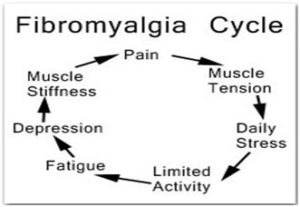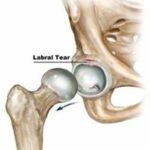Causes of Fibromyalgia
It is a common and complex chronic pain disorder that causes widespread pain and tenderness that may occur anywhere over the body. Along with other symptoms, pain and tenderness wax and wane over time. Fibromyalgia affects people physically, mentally and socially. Approximately 10 million Indians have Fibromyalgia with a female is to male ratio of 8:2. It may affect people of all ages, including children. The literal meaning of the word fibromyalgia is a pain in the muscles, but, Fibromyalgia is much more than pain and presents with many other symptoms that vary from person to person.
Symptoms of Fibromyalgia
Symptoms of fibromyalgia can vary in intensity. Fatigue, sleep disturbances (sleep apnea and/or waking up unfresh), cognitive difficulties (memory problems or unclear thought process), and stiffness are the most prevalent symptoms reported. Additional common symptoms may include depression or anxiety, migraines, tension headaches, pelvic pain, irritable or overactive bladder, irritable bowel syndrome (IBS), TMJD (including tinnitus), and gastrointestinal reflux disease (GERD). Stress often worsens the related problems and symptoms.
Diagnosis
The symptoms of fibromyalgia can be associated with many conditions or diseases, making it difficult to diagnose. Diagnosis is usually made by a doctor or rheumatologist after ruling out other diagnoses. Palpating a number of sensitive points in the body doctor can suggest some blood tests, scans, and x-rays to rule out other causes of pain.
Conditions that can mimic the features of fibromyalgia include an underactive thyroid (hypothyroidism), vitamin D deficiency, rheumatoid arthritis, and even sleep apnoea.
Treatment of Fibromyalgia
The management of fibromyalgia is complex but can be broken down into a number of parts. Treatment tries to slowly break the fibromyalgia cycle by addressing each of the points shown in the diagram below.
THE SYMPTOMS FEED EACH OTHER AS A SOURCE OF REOCCURRENCE OF PAIN

Understanding Pain and Symptoms through Education
- Having a good understanding of symptoms and how life has, and is, being affected by fibromyalgia is very important. A good assessment of painful areas can help reduce anxiety.
- Understanding the complex nature and cycles of pain can also help address the impact of fibromyalgia in one’s life.
- Physiotherapy can help with both these aspects of understanding Fibromyalgia.
Graduated Exercise Program
Exercise is an excellent way to help deal with stress and depression. Regular exercise also helps to improve eating and sleeping habits, which will lead to better general health, better mental health, and less sleep deprivation.
- Activities such as Hydrotherapy, Pilates, Yoga, walking, swimming, or cycling can benefit people with fibromyalgia
- stretching and mobility exercises can help reduce pain and tightness
- specific exercises to help build strength and endurance in the ‘postural’ muscles of the body, and take the load off achy muscles
MEDICATION:
A physician may prescribe medicines like antidepressants to help normalize chemical imbalances and also improve pain.
To relieve muscle pain and joint stiffness, a Physiotherapist can use-
- Soft Tissue Manipulation Techniques – to assist pain relief and muscle relaxation
- Dry Needling technique – to normalize the tone of hypertonic bands a muscle
- Joint mobilization and stretching – to improve muscle tightness and joint stiffness
Managing Activity Levels and Fatigue
- Fibromyalgia symptoms are fluctuating, which means that some days there won’t be any symptoms and other days it may be worse. Sometimes overactivity one day can lead to increased symptoms the next day, so being able to manage it is important.
- Keeping a note of activity/ fatigue diaries can help manage the symptoms of fibromyalgia and assist a person in achieving their goals.
Improve Ability to Cope with Daily Stress and Depression
Daily unpleasant work conditions or work that one doesn’t enjoy leads to built stresses from work or an unpleasant home atmosphere can increase fibromyalgia symptoms. A psychologist can help in developing strategies to cope with stressful situations.
Good sleep better health
Good sleep play a vital role in helping people suffering from Fibromyalgia. Poor sleep health can affect:
- Mood affection – Sleep benefits our mood, memory, and concentration
- Brain function – Sleep helps to organize memories and improve concentration.
- Emotional alteration – Lack of sleep makes a person more irritable, affecting emotions, social interaction, and decision-making.
- Lower immunity – Without adequate sleep, the immunity lowers down and the body becomes more vulnerable to infections and diseases.
- Nervous system maintenance – Sleep helps neurons to rest and repair. During Sleep neurons rest, replenish, and grow.
- Hormone balance – lock of sleep will alter the release of hormones and mall function of the endocrine system. This can give rise to several hormone-related disorders.
Surgery
‘Surgery is never an option to treat fibromyalgia’. However, if a doctor or specialist feels that there is a problem that needed surgery, which may be influencing the fibromyalgia symptoms, then surgery for that specific problem can be opted.
If one experiences symptoms related to fibromyalgia or for any query related to the condition consult Pain Free Physiotherapy Clinic in Dwarka, Delhi.





